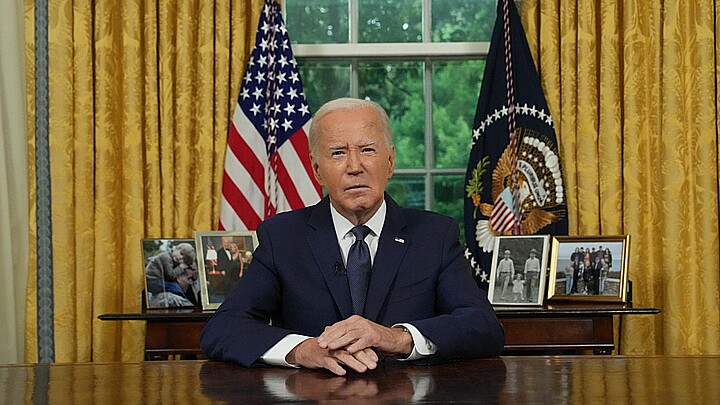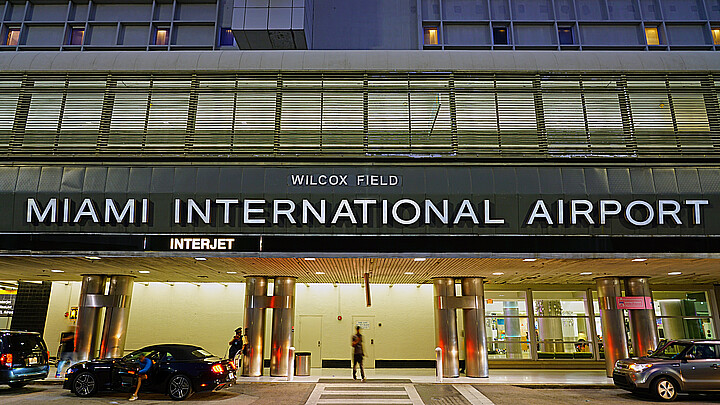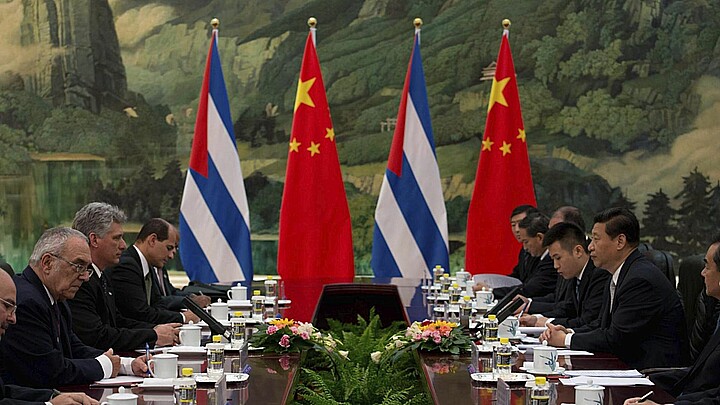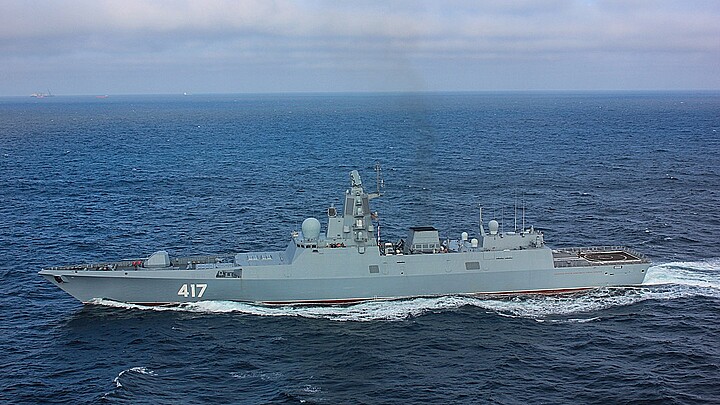Politics
World leaders ask U.N. to expel Cuba from Human Rights Council
A letter was sent addressed to authorities of countries and international organizations requesting the "expulsion" of Cuba from the U.N. Human Rights Council.
April 26, 2022 11:35am
Updated: April 27, 2022 8:47am
Around 600 public figures signed a letter addressed to authorities of countries and international organizations calling for the "expulsion" of Cuba from the United Nations Human Rights Council, the Center for a Free Cuba announced on Monday at a press conference in Miami.
This action marks the beginning of a campaign for the Havana regime to leave the U.N. Council, John Suarez, executive director of the Center, told EFE news agency.
Suarez said that the document with the signatures had already been sent to the White House and to Prime Ministers Magdalena Andersson of Sweden and Justin Trudeau of Canada. The U.N. High Commissioner for Human Rights, Michelle Bachelet, was also handed the letter, he added.
The Center for a Free Cuba stressed the importance of the letter, signed by former diplomats, human rights activists, and international personalities, claiming that it would reach the "leaders of all the countries in the United Nations General Assembly."
The request for the expulsion of the Cuban regime is based on the eighth point of the founding charter of the U.N. Human Rights Council, which states that when one of the members systematically violates human rights, it can be removed, explained Suarez.
"The Center for a Free Cuba (CFC), a partner organization of the Geneva Summit for Human Rights and Democracy, welcomes and joins UNWatch's call to expel China, Cuba, Eritrea, Libya, Mauritania, and Venezuela from the U.N. Human Rights Council," Suarez said in early April in support of the suspension of Russia's participation in the Council.
In 2020 Cuba was elected to the Human Rights Council, the same year that Russia, China, and Pakistan joined.
1,027 political prisoners were arrested in Cuba in March
The human rights organization Prisoners Defenders (PD) reported that there were 1,027 political prisoners in March alone in the island. The prisoners are "suffering judicial sentences and dispositions by the prosecution without judicial intervention," its latest report states.
According to the latest PD list, published on April 7, 891 of the 1,027 political prisoners present on the list were arrested in the July 11, 2021 demonstrations.
The NGO acknowledges that the real figure could be at least 30% higher.
The organization added that the repression extends to the families of political prisoners. Such is the case of Cuban Yudinela Caridad Castro Perez, mother of Rowland Jesus Castillo Castro, arrested at the age of 17 and sentenced to 18 years of imprisonment for demonstrating on July 11. Last February 24, Castro Perez, a cancer patient, was taken to prison on contempt of court charges for calling for the release of her son. She was released two weeks later.
Among the 1,027 cases are 38 minors, including a 13-year-old. Twenty of the minors have already been sentenced to an average of seven years in prison. Two girls and 14 boys verified by PD were sentenced for the alleged crime of sedition.
A total of 169 protesters, including the aforementioned minors, were prosecuted for sedition. Around 652 prisoners have already been sentenced, 259 of them with sentences of more than ten years.
The group of political prisoners includes at least 131 women.
Prisoners Defenders claims that, in the 11J demonstrations, more than 5,000 people were arrested and more than 1,500 have been criminally prosecuted, including minors.
In April 2021, there were 140 political prisoners on the island. In other words, the number has increased tenfold in one year. From then and until March 31, 2022, another 1,061 political prisoners have been added to the figure.
From April 1, 2021, to March 31, 2022, 1,204 political prisoners have been imprisoned in Cuba.










